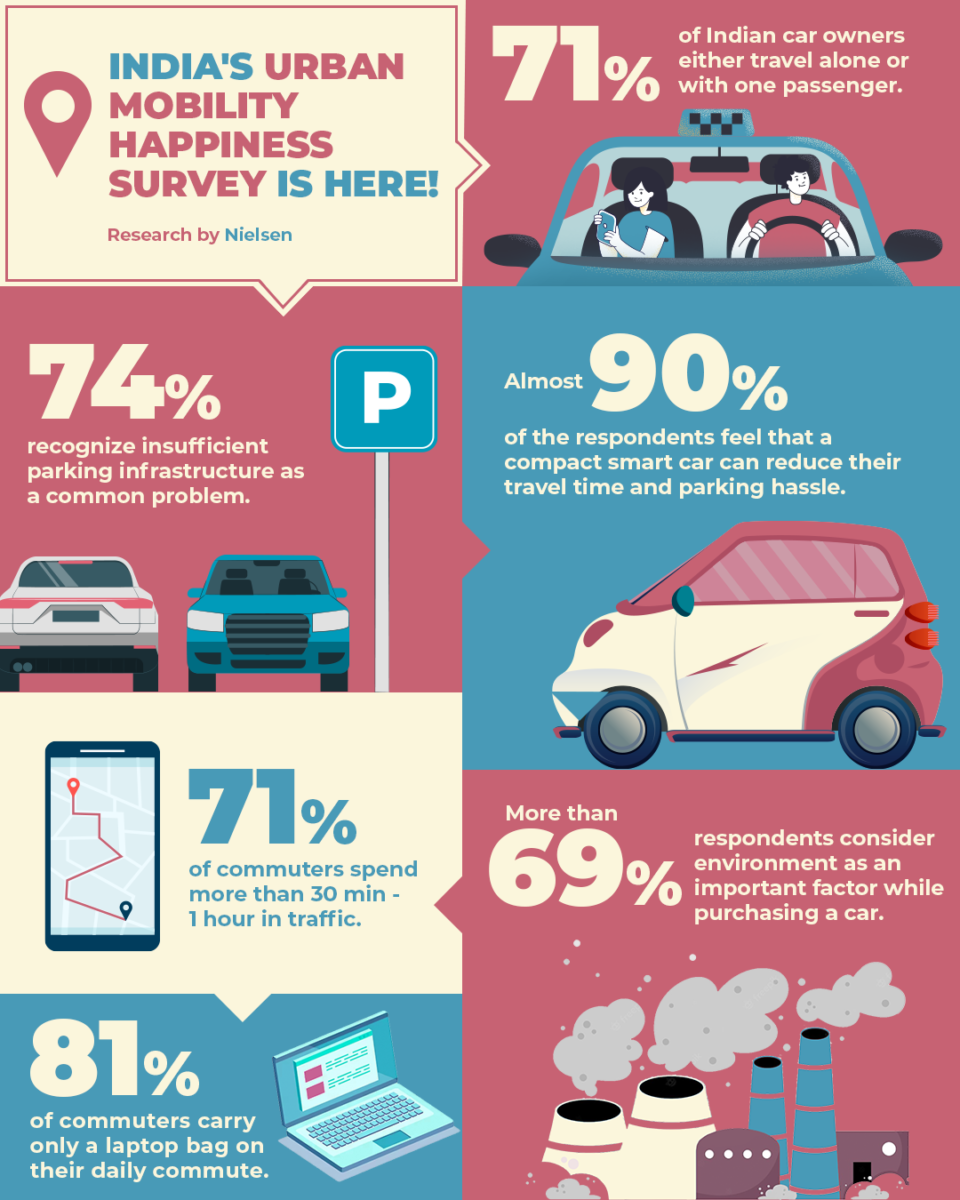MG Motor India has revealed the results of its Urban Mobility Happiness Survey, which was conducted by Nielsen. This study provides valuable insights into the commuting patterns of individuals in major Indian cities, highlighting the challenges they face when traveling. The report sheds light on the current state of urban mobility in India and could be a useful resource for stakeholders, including policymakers, to better understand the needs of commuters and to facilitate the development of more efficient and effective urban mobility infrastructure. The research covered the urban areas of eight major Indian cities renowned for their intricate transportation systems and congested roads. These cities are Ahmedabad, Bengaluru, Pune, Mumbai, Delhi NCR, Chennai, Hyderabad, and Kolkata. The survey gathered responses from a diverse group of individuals aged between 18 to 37 years, comprising both males and females who own at least one car in their household. Some of the problems being faced are mentioned below:-

74% of people say that parking infrastructure is insufficient
Parking is a significant issue faced by car owners in India, with non-availability and poor management of parking spaces being a common occurrence in many cities. The lack of proper infrastructure has led to 64% of individuals deciding not to use their cars, as it can be a major hassle to find a parking spot. In some cases, car owners are forced to park their vehicles illegally, leading to fines and other penalties. The situation is further exacerbated during peak hours and special events, where parking can become virtually impossible to find.
71% of car owners travel with 1 passenger on-board
Despite the various initiatives undertaken to promote shared mobility in Indian cities, it appears that a large number of car owners still prefer to travel alone or with just one other passenger. According to a recent survey, 71% of respondents reported driving their cars alone or with one other passenger, indicating a low uptake of shared mobility options. Interestingly, only 1% of respondents reported always traveling with more than one passenger, suggesting that there may be significant room for improvement in terms of encouraging carpooling and other forms of shared transportation.
73% of car owners drive on city premises
The car is a popular mode of transportation for urban residents in many cities across India, with 73% of respondents using their vehicles for daily or occasional commuting to work or college. In addition to work-related trips, car owners frequently use their vehicles for household errands, shopping, social outings, and weekend getaways. The convenience and flexibility of having a car readily available make it an attractive option for many people. Furthermore, about 38% of survey participants reported using their vehicles in emergency situations, highlighting the importance of having access to a reliable and efficient means of transportation during times of crisis.
Other problems faced by car owners
The Urban Mobility India Survey highlights several challenges faced by car owners in Indian cities, including insufficient parking infrastructure, limited shared mobility, increased travel times, and fuel price hikes. Despite growing environmental concerns, petrol-powered vehicles remain popular, with 50% of respondents owning petrol vehicles. Nowadays, residents prefer compact cars for City commuting. Also, the residents have to spend approx more than 30 mins for regular commute. Air and noise pollution also remain a major concern for most city dwellers, with 80% of respondents believing that the air in their city is polluted. However, smart mobility solutions like compact cars were viewed as potential solutions to urban mobility challenges, and cities like Kolkata, Pune, and Chennai scored well on the happiness index.
About Urban Mobility Happiness Survey
The Urban Mobility Happiness Survey, launched by MG Motor India, serves as a valuable tool for city planners and policymakers to gauge the satisfaction and contentment of urban residents with regard to their transportation system. The survey evaluates various parameters such as personal mobility, public transportation, road quality, traffic congestion, affordability, and environmental impact, and then computes an index to rate the overall quality of urban mobility. Through the UMHI, policymakers can identify areas of improvement and prioritize initiatives that will improve the transportation system’s quality, thereby enhancing the overall well-being of urban residents. Moreover, the UMHI can provide valuable insights into the relationship between transportation and well-being, which could inform urban planning strategies and policies aimed at promoting healthier and more sustainable lifestyles for urban dwellers.
Official Statement
Commenting on the survey, Gaurav Gupta- Chief Commercial Officer from MG Motor India said, “The findings of the ‘Urban Mobility Happiness Survey’ have provided us with valuable insights into the driving behavior of Indian consumers and their preferences for mobility solutions. The survey clearly reflects that car owners, along with the performance and features of their vehicles, also prioritize convenience, safety, and overall driving experience. As a brand that is driven to deliver state-of-the-art mobility solutions, we understand the importance of keeping up with the evolving needs of our customers.”
